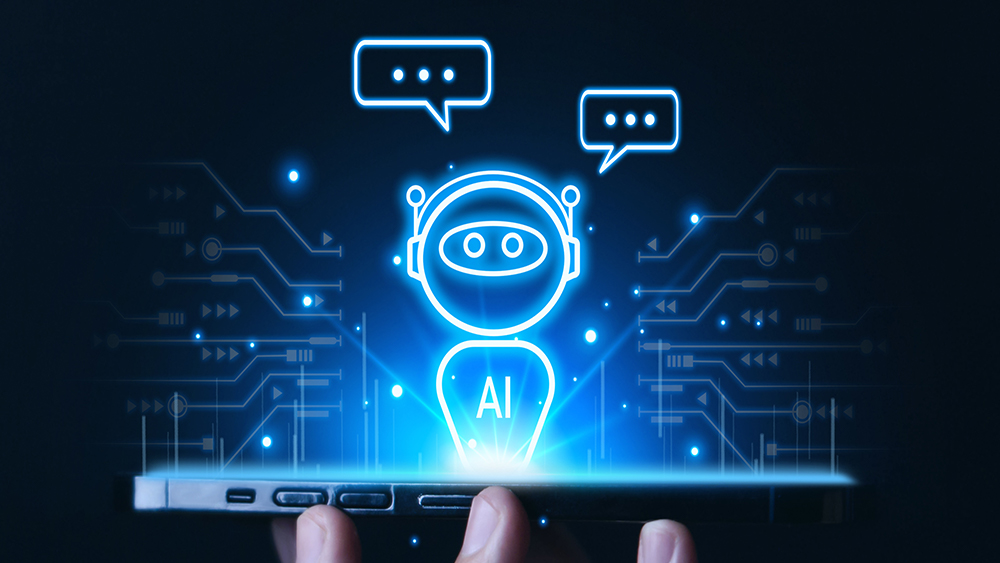by Willow Tohi, Natural News:

-
- Artificial intelligence (AI) is transforming scientific research by actively co-discovering alongside scientists, from predicting molecular behavior to rediscovering antibiotic resistance mechanisms, marking a shift from traditional trial-and-error methods.
- Developed by Monash University researchers, LLM4SD (Large Language Model 4 Scientific Discovery) is an open-source AI system that mimics scientific research steps—retrieving literature, analyzing data and generating hypotheses—while providing interpretable explanations, bridging the gap between AI predictions and actionable insights.
TRUTH LIVES on at https://sgtreport.tv/
-
- Tested in 58 research tasks across fields like quantum mechanics and biophysics, LLM4SD outperformed state-of-the-art tools, improving accuracy by up to 48% in predicting quantum properties, showcasing its potential to accelerate discovery in resource-intensive fields.
-
- Tools like LLM4SD, Google’s AI co-scientist, and Microsoft’s MatterGen and Aurora are revolutionizing drug discovery, materials science and climate forecasting by generating hypotheses, predicting material behaviors and delivering accurate weather predictions in seconds, significantly reducing time and costs.
-
- While AI tools promise to amplify scientific progress, researchers emphasize the need for ethical development, transparency and accountability. AI is seen as a collaborative partner, enhancing human ingenuity rather than replacing it, to address humanity’s most pressing challenges.
In the annals of scientific progress, breakthroughs have often been the result of painstaking experimentation, serendipity or the slow accumulation of knowledge over decades. But a new era is dawning, one where artificial intelligence (AI) is not just assisting scientists—it’s actively co-discovering alongside them. From predicting molecular behavior to rediscovering antibiotic resistance mechanisms, generative AI tools are reshaping how we approach scientific inquiry.
The latest development comes from an Australian research team led by Monash University, which has unveiled a groundbreaking AI tool named LLM4SD (Large Language Model 4 Scientific Discovery). Published in Nature Machine Intelligence, this open-source system is designed to mimic the key steps of scientific research: retrieving information from literature, analyzing data and generating hypotheses. What sets LLM4SD apart is its ability to explain its reasoning, a feature that bridges the gap between AI’s “black box” predictions and actionable scientific insights.
“Just like ChatGPT writes essays or solves math problems, our LLM4SD tool reads decades of scientific literature and analyzes lab data to predict how molecules behave—answering questions like, ‘Can this drug cross the brain’s protective barrier?’ or ‘Will this compound dissolve in water?’,” said Yizhen Zheng, a PhD candidate at Monash University and lead co-author of the research.
A new era of AI-driven discovery
The LLM4SD tool was tested across 58 research tasks in fields as diverse as physiology, physical chemistry, biophysics and quantum mechanics. In one striking example, it outperformed state-of-the-art tools by boosting accuracy by up to 48% in predicting quantum properties critical for materials design. This leap in performance underscores the potential of generative AI to accelerate discovery in fields where traditional methods are time-consuming and resource-intensive.
“Rather than replacing traditional machine learning models, LLM4SD enhances them by synthesizing knowledge and generating interpretable explanations,” said Jiaxin Ju, a PhD candidate at Griffith University and co-author of the study.
This sentiment is echoed by Huan Yee Koh, another lead co-author, who emphasized the tool’s ability to make AI-driven predictions accessible and reliable across disciplines. “This approach ensures that AI-driven predictions remain reliable and accessible to researchers across different scientific disciplines,” Koh said.
From trial-and-error to AI-powered insights
Historically, scientific discovery has been a process of trial and error, often requiring years—or even decades—of experimentation. For example, the discovery of penicillin in 1928 by Alexander Fleming was a serendipitous accident, while the development of the COVID-19 vaccines relied on decades of prior research into mRNA technology.



